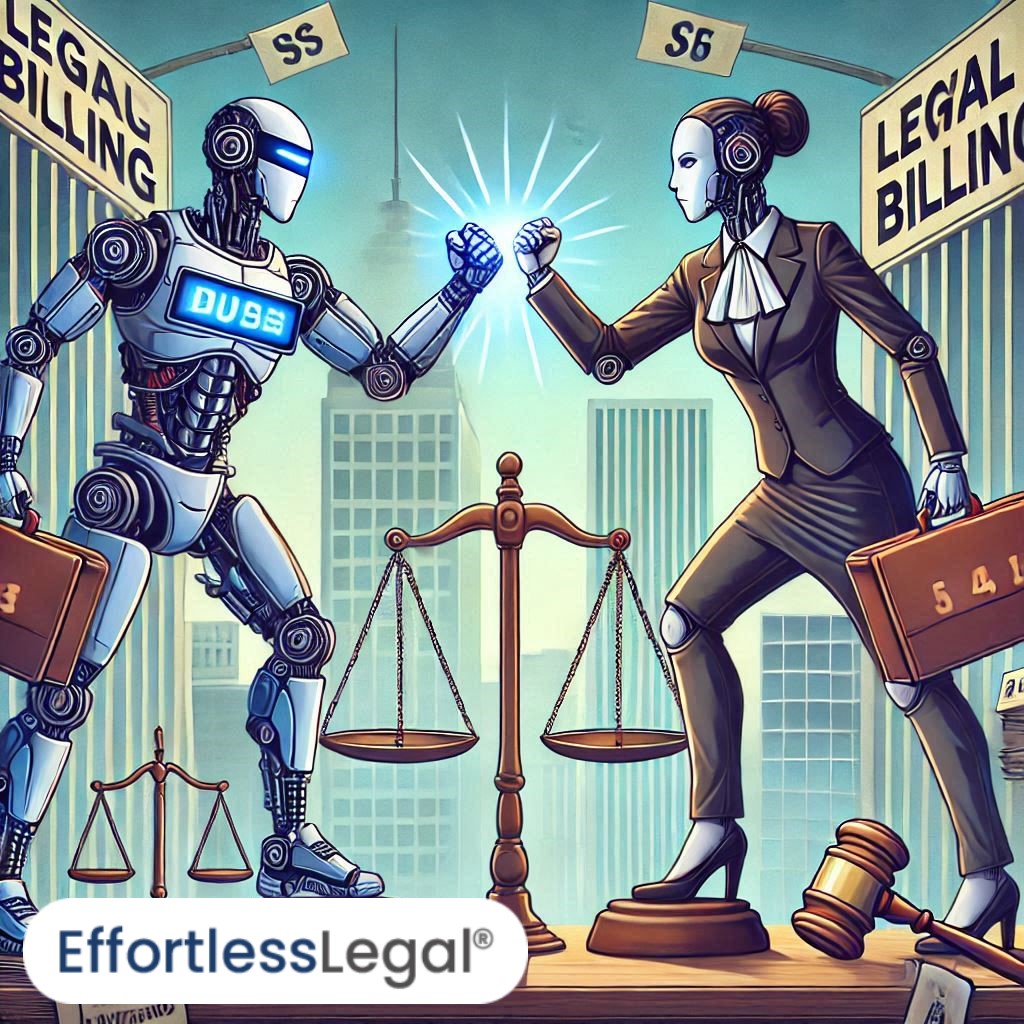Legal Billing: Can We Use AI to Counter AI?
It is well-known that legal fees are often scrutinized by many businesses. Effective cost management is essential, but going over law firm bills by hand can be a laborious and error-prone procedure.
Because Artificial Intelligence (AI) can improve speed, accuracy, and automation in the billing process, businesses are increasingly using it to check legal invoices.
AI-powered solutions are transforming the way businesses assess legal bills by providing a number of advantages that increase accuracy, lower expenses, and streamline processes.
Similarly, AI is also altering the landscape for law firms. Many aspects of legal billing are also changing as a result of AI.
A number of AI-powered applications are also becoming increasingly popular for law firms. In addition to automatically coding billing entries, and helping law firms comply with client billing requirements like Outside Counsel Guidelines, these apps also help law firms ensure fair and ethical billing.
These advanced features allow law firms to increase the likelihood of getting paid in full and on time. In addition, the AI-powered apps help make law firm’s bills more readily defensible in the case of disputes or non-payment.
As a result, AI-powered billing apps streamline the billing process for both law firms and their clients, reducing fee disputes and other inefficiencies.
What’s In It for Companies?
Client companies have seen considerable cost benefits from the use of AI in invoice review and evaluation. In fact, several have reported large reductions in legal expenses.
Any discrepancies or mistakes, including duplicate entries, non-billable activities or charges, improper coding, or block billing, can be quickly identified by these sophisticated AI systems.
AI may also automatically compare invoices to Outside Counsel Guidelines and billing rules, highlighting any discrepancies or infractions.
More standardized and transparent billing procedures can result from AI-driven solutions that raise compliance rates and promote improved billing practices across legal firms. This guarantees that the previously agreed terms are followed.
In addition to saving time, this lessens the possibility of overcharging and aids in budgetary control. Significant cost reductions are achieved by the AI-powered legal cost management systems through the detection and removal of billing mistakes and non-compliant charges.
Thanks to this degree of automatic inspection, business can be assured that they are only paying for reasonable and proper legal services.
In addition, for even better results, businesses may utilize their own billing data to train AI-powered invoice assessment systems – such as the “BillerAssist for Clients" application line from EffortlessLegal.
The outcomes are specifically adapted to each client company's own invoice review procedures and preferences after the AI has been trained on the client company’s billing data.
This accounts for the fact that different kinds client companies require different kinds of legal work. It also takes into consideration how different client companies examine invoices to varying degrees.
AI can also highlight possible problems for human assessment, allowing legal teams to concentrate on more strategic work rather than laborious invoice processing.
For in-house legal teams, this frees up important time and resources.
In a similar vein, automating the invoice review procedure lowers administrative expenses by eliminating the need for manual review and assessment. Artificial intelligence (AI) technologies can swiftly spot mistakes that people might overlook and quickly review a lot of bills.
The time required to examine and authorize legal bills may also be greatly decreased by using AI, which can handle invoices far more quickly than humans.
Additionally, AI helps in-house legal teams obtain more perceptive business analytics and strategic suggestions for process and cost optimization.
This useful information and analytics on legal expenditures allows businesses to decide on their legal strategy, as well as resource and financial allocation, that is backed by actual data.
Client companies may negotiate rates with law firms more effectively if they have these in-depth information analytics regarding billing trends and patterns.
AI also makes it possible for legal departments to work with their outside counsel more cooperatively and pro-actively.
Early detection of billing problems by AI-powered systems enables businesses to take proactive measures to resolve them and steer clear of the myriad inefficiencies of billing disputes.
In fact, EffortlessLegal's “BillerAssist for Clients" solutions stand out for exactly this sort of collaborative approach.
By offering immediate real-time feedback on billing, and pointing out areas for improvement, the AI-powered “BillerAssist for Clients” apps can help businesses and their outside counsel manage billing expectations and communicate more clearly.
Additionally, as AI automates repetitive and tiresome activities, legal departments can concentrate on higher-value work.
AI thus helps legal staff members avoid burnout and minimize stress by taking over the laborious task of manually reviewing invoices.
Therefore, by enabling their experts to concentrate on more demanding and fulfilling work, legal departments may leverage technology to foster better job satisfaction.
All things considered, businesses aiming to maximize their legal operations and financial management would be wise to incorporate AI into the examination and evaluation of legal invoices.
How Do Law Firms Benefit?
Using AI for legal billing presents challenges. Due to the hefty upfront expenses of customized AI solutions, smaller law firms may find it difficult to compete with larger firms that can afford such cutting-edge technology.
Furthermore, AI systems may not account for the subtleties of legal billing across different firms, including the context and intricacy of the underlying legal work. This could result in inaccurate invoices, delays in processing, or even ethical dilemmas.
These issues are immediately addressed by various emerging AI-powered billing assistant apps, including EffortlessLegal's own “BillerAssist" series of apps.
By integrating and working with the law firm's current billing systems, these BillerAssist applications solve the issue of expensive setup costs, and facilitate seamless implementation and ease of use.
Additionally, these apps enable law firms to train the AI using their own billing data, resulting in outcomes that are customized for each individual law firm.
Thus, law firms can easily benefit from AI-powered billing systems.
With AI systems that can process large volumes of data and apply learned intelligence to invoice evaluation, one of the main advantages is the notable increase in billing speed.
AI-powered billing solutions can expedite the invoicing process and greatly improve the likelihood of full and timely payment. Regular and reasonable invoicing not only enhances client relations, but improves the income and profitability of the law firm.
Additionally, just as with client legal departments, AI allows legal practitioners to concentrate on more complicated, value-added work by automating repetitive and monotonous duties. This helps raise staff retention rates, lower stress and burnout, and increase job satisfaction.
AI-powered billing assistants also provide the data needed for improved resource allocation decisions, as well as streamlining administrative procedures, both of which boost overall business productivity.
Conclusion
In conclusion, artificial intelligence is quickly changing the legal sector, and its effects on legal billing will only intensify.
By improving speed and accuracy, and by standardizing acceptable and reasonable fees across firms and client companies, AI has the potential to completely transform the evaluation of legal invoices.
Adopting AI-powered solutions provides both businesses and their counsel a substantial and reciprocal competitive edge by boosting productivity, fostering more teamwork, and providing more insights into possibilities for improvement.





